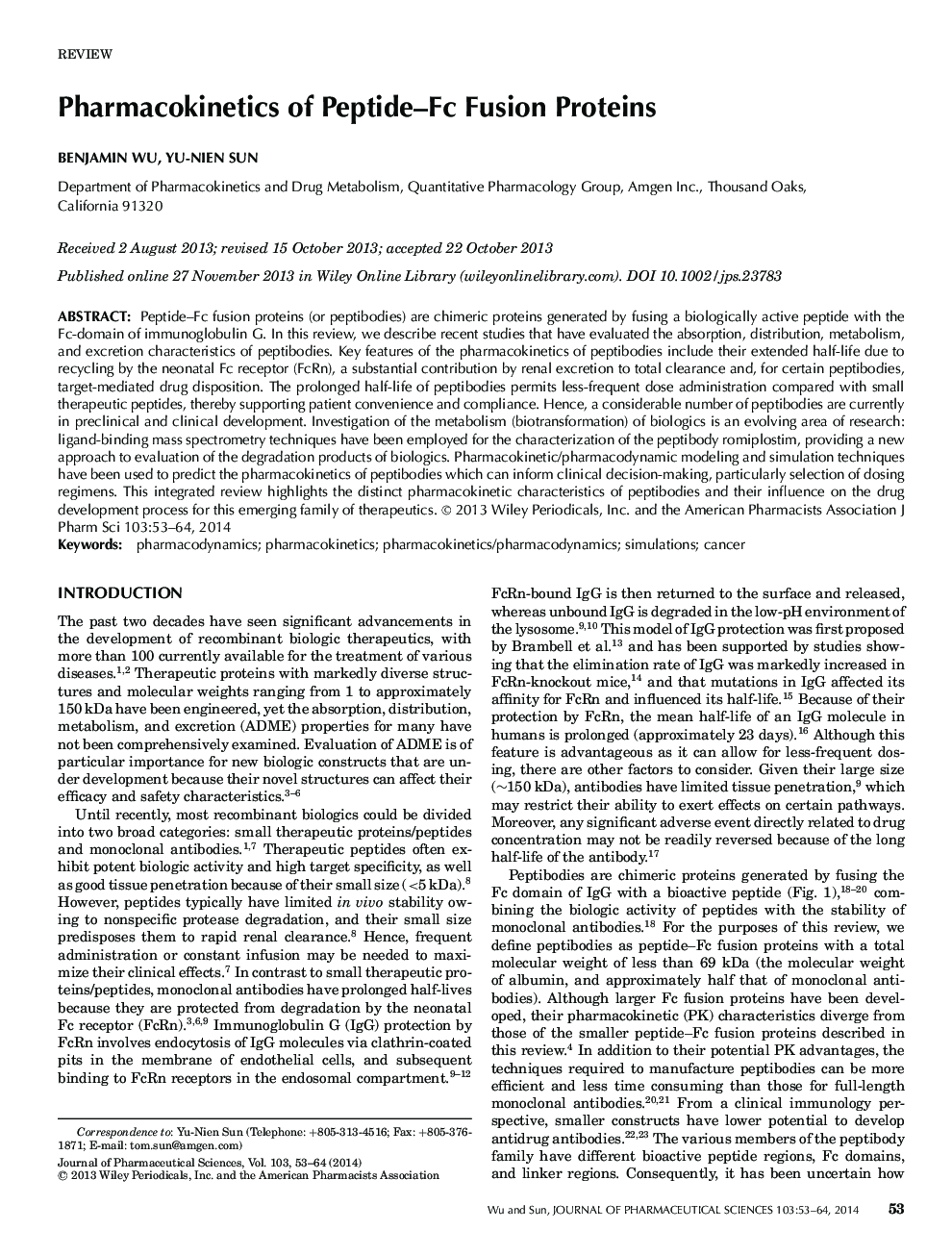| Article ID | Journal | Published Year | Pages | File Type |
|---|---|---|---|---|
| 10162629 | Journal of Pharmaceutical Sciences | 2014 | 12 Pages |
Abstract
Peptide-Fc fusion proteins (or peptibodies) are chimeric proteins generated by fusing a biologically active peptide with the Fc-domain of immunoglobulin G. In this review, we describe recent studies that have evaluated the absorption, distribution, metabolism, and excretion characteristics of peptibodies. Key features of the pharmacokinetics of peptibodies include their extended half-life due to recycling by the neonatal Fc receptor (FcRn), a substantial contribution by renal excretion to total clearance and, for certain peptibodies, target-mediated drug disposition. The prolonged half-life of peptibodies permits less-frequent dose administration compared with small therapeutic peptides, thereby supporting patient convenience and compliance. Hence, a considerable number of peptibodies are currently in preclinical and clinical development. Investigation of the metabolism (biotransformation) of biologics is an evolving area of research: ligand-binding mass spectrometry techniques have been employed for the characterization of the peptibody romiplostim, providing a new approach to evaluation of the degradation products of biologics. Pharmacokinetic/pharmacodynamic modeling and simulation techniques have been used to predict the pharmacokinetics of peptibodies which can inform clinical decision-making, particularly selection of dosing regimens. This integrated review highlights the distinct pharmacokinetic characteristics of peptibodies and their influence on the drug development process for this emerging family of therapeutics. © 2013 Wiley Periodicals, Inc. and the American Pharmacists Association J Pharm Sci 103:53-64, 2014
Related Topics
Health Sciences
Pharmacology, Toxicology and Pharmaceutical Science
Drug Discovery
Authors
W.U. Benjamin, Yu-Nien Sun,
